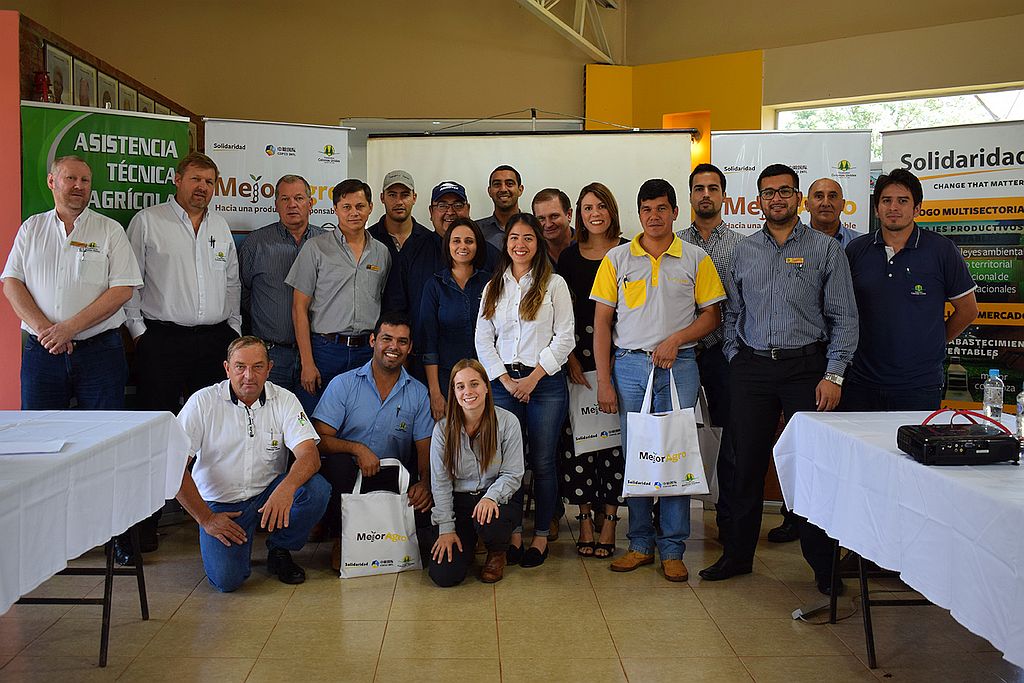 The Cofco, Colinas Unidas and Solidaridad teams at the MejorAgro assessment workshop in January 2020
The Cofco, Colinas Unidas and Solidaridad teams at the MejorAgro assessment workshop in January 2020
Evaluating a proven model
“If you cannot measure it, you cannot improve it,” British mathematician Lord Kelvin once said. Under this motto, Solidaridad, Cofco International and farmer association Colonias Unidas gathered in January 2020 for a workshop on lessons learned during MejorAgro, their joint programme which ran from 2017 to 2019.
The programme was based on a model which has been perfected since 2014. Solidaridad has also used it in award-winning projects with British retailer Marks & Spencer, and American food processor and commodities trader ADM.
Multi-level benchmarking using a digital platform
Using a digital platform developed by Solidaridad, Colonias Unidas assessed the level of performance of their associates in terms of social, environmental and economic sustainability: level 1 “needs changes”, 2 “faces challenges”, 3 “towards responsible production”, and 4 “leads the way”. To do this, they used both the country legal frame and criteria from the Round Table of Responsible Soy (RTRS) as benchmarks.
99% of MejorAgro participants improved their environmental performance”
Major improvements in environmental, social and financial performance
Though two years of implementation might be too short to measure the impact of the adoption of good practices, most of the farmers are already reaching higher levels in terms of their environmental, social and financial performance (see graph below):
-
99% of MejorAgro participants improved their environmental performance, reaching level 3 (42%) and level 2 (57%) in 2019
-
96% improved their social performance in 2019, reaching level 2 (70%), 3 (6%) and 4 (20%) and decreasing critical gaps by 32%
-
financial management saw the biggest progress. At the beginning of the programme, 52% of the farmers were graded Level 2 for how they went about their business finance. After two years 72% were on level 4.
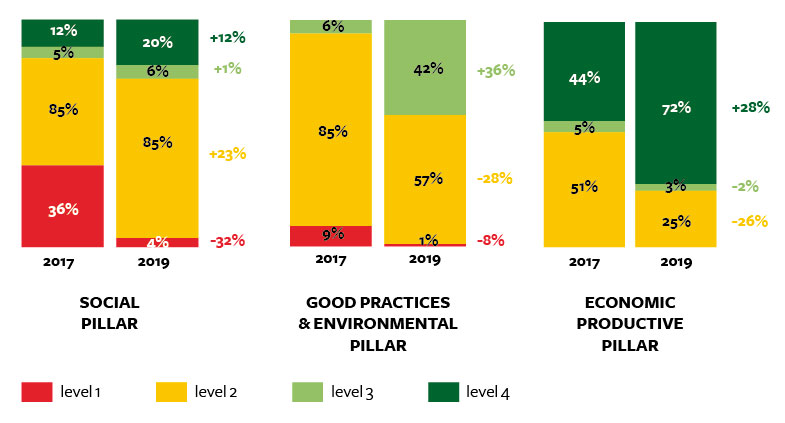
Zero deforestation
MejorAgro started as an initiative to gradually and measurably increase the uptake of sustainable practices among smallholder farmers(less than 200 hectares). Colonias Unidas is one of the most respected farmer associations in Paraguay, and currently exports 3% of the country’s total soybean crop. Its members own small- and medium-sized farms in a region where a zero deforestation law applies.
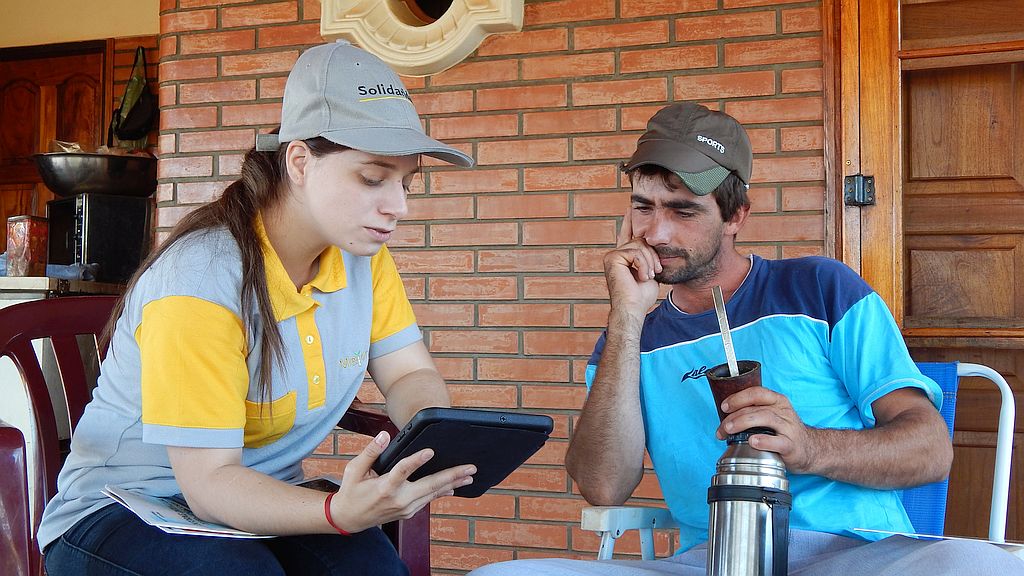
Interactive digital tools like tablets played a crucial role in MejorAgro’s success
Showcased at the UNGC
Each participant received an individual – and confidential – assessment with recommendations on which gaps needed to be bridged most urgently in order to advance from one level to the next. At the same time, the farmer association received a group assessment that served as the baseline to guide both training and technical assistance in the field.
The MejorAgro programme won international recognition for its use of digital technology, real-time analysis of farming practices, and continual sustainability improvements. The United Nations Global Compact (UNGC), a voluntary pact encouraging businesses to adopt sustainable and socially responsible practices, invited programme staff to participate at its regional summit in Mexico in December 2019.
Access to information is essential for smallholders, as it creates knowledge and empowerment” – Alma Acosta, Solidaridad Paraguay
“Access to information is essential for smallholders, as it creates greater knowledge and empowerment,” explains Alma Acosta, programme manager for Solidaridad Paraguay, who attended the Mexico summit. “This in turn contributes to reducing inequalities in different areas that influence agriculture.”
Enthusiastic take-up of programme workshops
Francisco Rótela, a field officer for Colonias Unidas, pointed out the high number of farmers joining the open training sessions offered by the programme. Where 100 participants were expected, 700 ended up taking part, and the 39 workshops indirectly benefited 1,594 people.
In the environmental and good agricultural practices (BPA) pillar, technical assistance was focused on eradicating level 1 practices, such as the causing erosion and soil removal, while creating awareness of the benefits of better fertilization and pest control management.
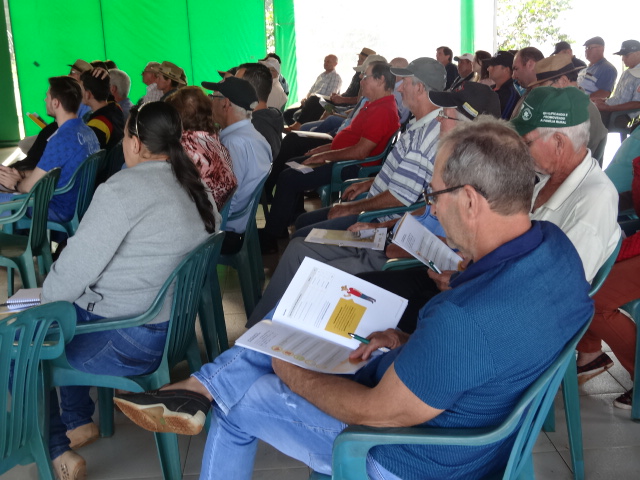
MejorAgro participants at one of the 39 training sessions. Participation exceeded expectations by a factor of seven
Participants begin investing in their farms
“For me, productivity is the key to improving my income, and this mainly means improving the soil,” said Claudio S. a soy farmer in the town of La Paz. “There is always a lot to improve on the farm, and everything has a cost and is difficult. Sometimes it is tempting to replace a truck rather than invest that money in the field, but it is a long-term investment and the land is not renewable.”
Between 2017 and 2019, participants gradually began to invest in:
-
storage outside their homes for agrochemicals
-
improved ventilation of existing storage
-
soil analysis to maintain soil fertility.
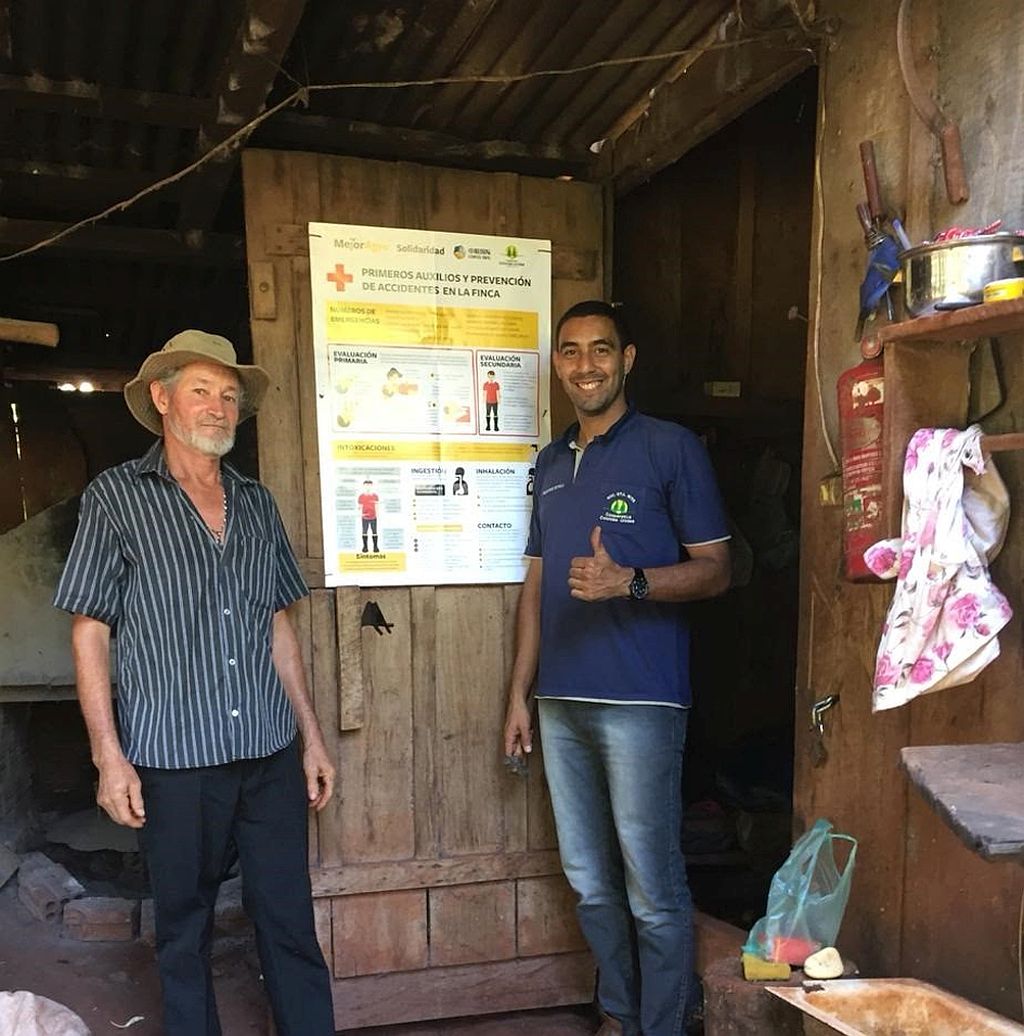
All of the MejorAgro participants received first aid training, like farmer Antonio Fernández (left) pictured here with Colinas Unidas field officer, Francisco Rótela
Teaching best practices across the board
The percentage of farmers facing challenges in terms of environmental performance (level 2) decreased from 85% to 57%. The percentage of participants advancing to level 3 rose significantly from 6% to 42%.
One participant, Darío Tucholke, said, “We sometimes forget important details when we are overwhelmed by the harvest. The programme was a good reminder. Now, after applying agrochemicals, we follow the procedure to safely manage the empty containers and deliver them to the companies in charge of collecting them.”
In terms of social factors, the percentage of farmers in level 1 dropped from 36% to 4%. All farmers received first aid kits, put warning signage on the entry of their store rooms and were trained in both first aid and fire control.
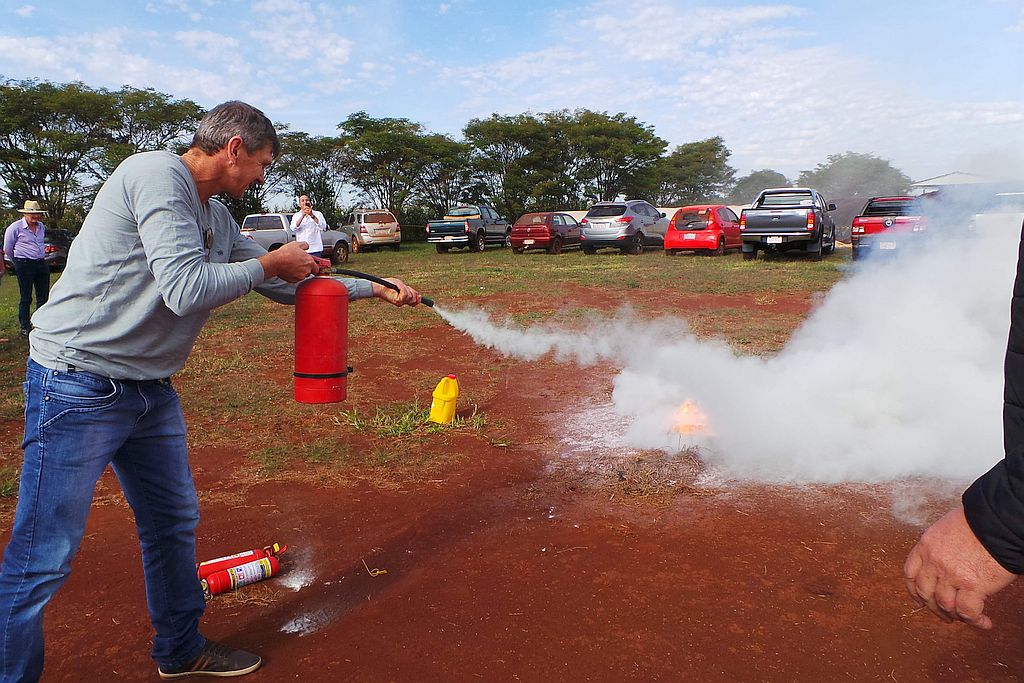
Many of the participants owned fire extinguishers but were unsure how to use them before the training session
“The training on how to use fire extinguishers was very rewarding since we often buy them without knowing how to use them,” said farmer Antonio Fernández from Santa Rita.
I hope programmes with this approach continue to be developed because they ensure good farm management” – Efraín Chávez, Cofco International
Emphasis on continuous improvement
As part of the continuous improvement model, Colonias Unidas intends to continue encouraging farmers to adopt good practices, emphasizing the social, economic and environmental issues that are integrated with the management of the resources on their farms.
The move was welcomed by Efraín Chávez, representative of Cofco International, who said, “The technical work carried out by the MejorAgro team is of vital importance. I hope programmes with this approach continue to be developed because they ensure good farm management.”
>Learn more about Solidaridad’s work in the soy supply chain
